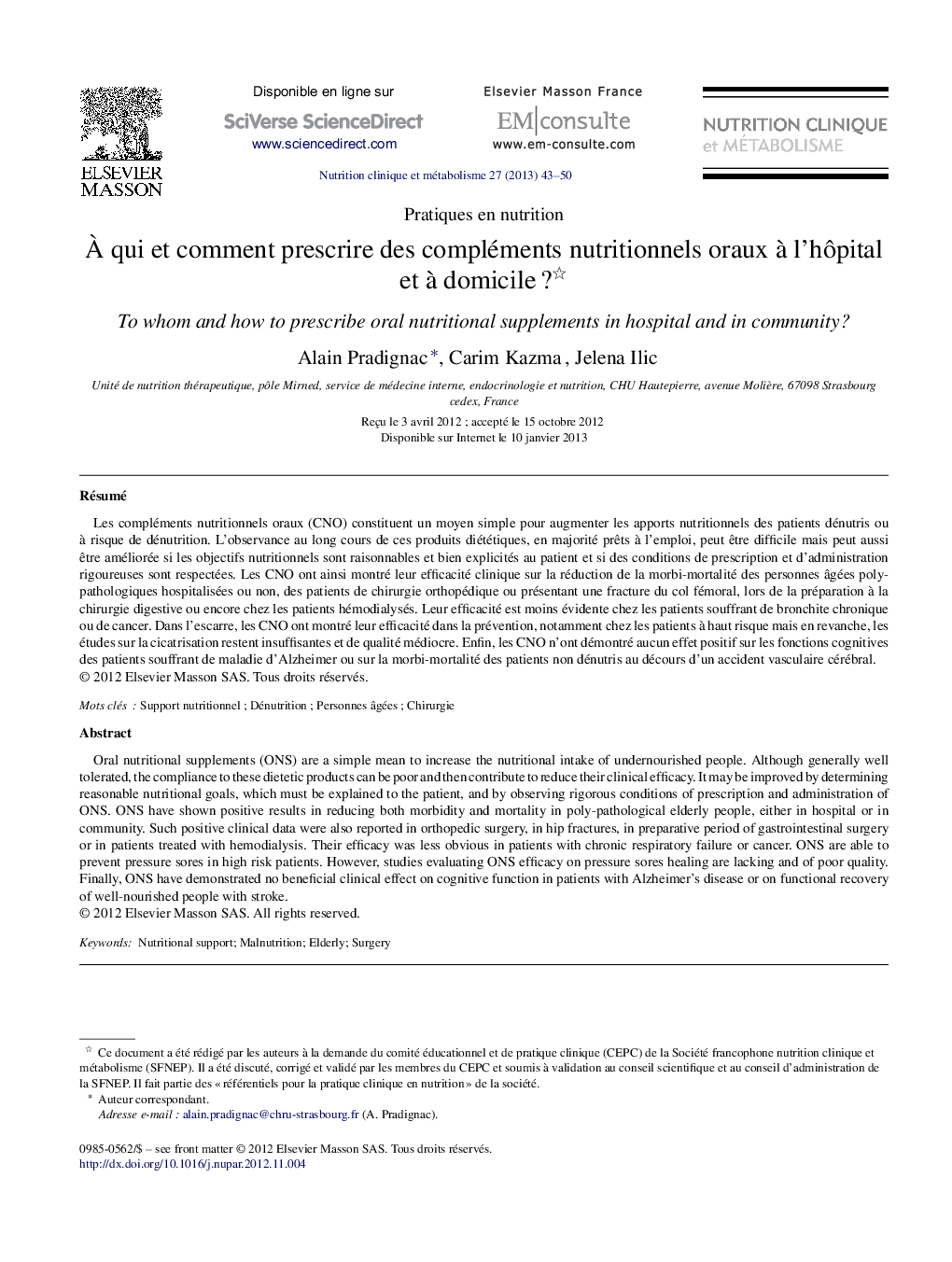| کد مقاله | کد نشریه | سال انتشار | مقاله انگلیسی | نسخه تمام متن |
|---|---|---|---|---|
| 2692890 | 1143480 | 2013 | 8 صفحه PDF | دانلود رایگان |

RésuméLes compléments nutritionnels oraux (CNO) constituent un moyen simple pour augmenter les apports nutritionnels des patients dénutris ou à risque de dénutrition. L’observance au long cours de ces produits diététiques, en majorité prêts à l’emploi, peut être difficile mais peut aussi être améliorée si les objectifs nutritionnels sont raisonnables et bien explicités au patient et si des conditions de prescription et d’administration rigoureuses sont respectées. Les CNO ont ainsi montré leur efficacité clinique sur la réduction de la morbi-mortalité des personnes âgées polypathologiques hospitalisées ou non, des patients de chirurgie orthopédique ou présentant une fracture du col fémoral, lors de la préparation à la chirurgie digestive ou encore chez les patients hémodialysés. Leur efficacité est moins évidente chez les patients souffrant de bronchite chronique ou de cancer. Dans l’escarre, les CNO ont montré leur efficacité dans la prévention, notamment chez les patients à haut risque mais en revanche, les études sur la cicatrisation restent insuffisantes et de qualité médiocre. Enfin, les CNO n’ont démontré aucun effet positif sur les fonctions cognitives des patients souffrant de maladie d’Alzheimer ou sur la morbi-mortalité des patients non dénutris au décours d’un accident vasculaire cérébral.
Oral nutritional supplements (ONS) are a simple mean to increase the nutritional intake of undernourished people. Although generally well tolerated, the compliance to these dietetic products can be poor and then contribute to reduce their clinical efficacy. It may be improved by determining reasonable nutritional goals, which must be explained to the patient, and by observing rigorous conditions of prescription and administration of ONS. ONS have shown positive results in reducing both morbidity and mortality in poly-pathological elderly people, either in hospital or in community. Such positive clinical data were also reported in orthopedic surgery, in hip fractures, in preparative period of gastrointestinal surgery or in patients treated with hemodialysis. Their efficacy was less obvious in patients with chronic respiratory failure or cancer. ONS are able to prevent pressure sores in high risk patients. However, studies evaluating ONS efficacy on pressure sores healing are lacking and of poor quality. Finally, ONS have demonstrated no beneficial clinical effect on cognitive function in patients with Alzheimer's disease or on functional recovery of well-nourished people with stroke.
Journal: Nutrition Clinique et Métabolisme - Volume 27, Issue 1, February 2013, Pages 43–50